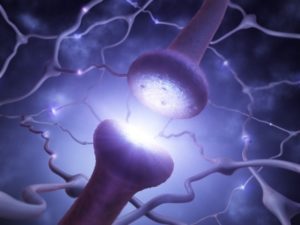
image: iStock photo
In my book, ‘How Your Mind Can Heal Your Body’, I wrote about gaining strength by using our minds to imagine exercising and I have spoken about the subject in many talks and workshops.
I jokingly suggest that we can lie in our beds instead of going to the gym and just do the workout in our minds. So I was excited to learn of some very recent scientific research that showed just how much we can replace actual training with training in our minds. The research was carried out the Institute of Sports Science at the Justus Liebig University Giessen in Germany and led by Mathias Reiser and published in Frontiers in Psychology in August 2011.
They compared 5 groups of people. One did 100% of a training program physically, one group did 75% of it physically and 25% of it in the minds, another did 50% physically and 50% mentally, yet another did 25% physical training and 75% mental training, and the last group did no training.
The training consisted of 12 sessions where they did 4 sets of 2 maximal isometric contractions – physically or mentally.
Incredibly, there was only a very small difference in strength gains between doing 100% of the training in the gym and doing just 25% in the gym and doing the extra time mentally. You really could lie in your bed on a cold, wet morning instead of going to the gym. They thing is, though, you’d need to do the whole session in your mind. But research of this sort really does show the incredible potential of the human mind.
The authors concluded that ‘high intensity strength training sessions can be partly replaced by mental strength training sessions.’ Is that a loud cheer I hear from those who love the feel of a warm bed on a Saturday morning?
This is meaningful for people who are not able to do any physical exercise, perhaps through illness or injury, because they can offset some loss in strength by working out in their minds. Neuroscience research shows that the same areas of the brain are activated regardless of whether a person does actual training or simulates it in their minds. And, incredibly, the amount of force produced by the muscles is directly proportional to the degree of activation of the brain area. In other words, the more you activate the brain through mental work, the stronger the muscle.
Research of this type is highly encouraging, for people with illness or injury, for people in competitive sports, but also for most people who do recreational exercise to keep fit.
It lays to rest any ideas of the mind as an impotent ghostly thing, whose only role is to think thoughts and to analyse life circumstances.
It is time we recognised the power of the mind and put it to good use in our lives.
References:
David R Hamilton PhD, ‘How Your Mind Can Heal Your Body’ (Hay House, 2008). UK paperback. US paperback. Kindle.
For the Justus Liebig University research paper, see: M. Reiser, D. Busch, and J. Munzert, ‘Strength gains by motor imagery with different ratios of physical to mental practice’, Frontiers in Psychology, 2011, 2, article 194. Click here to view a PDF.
